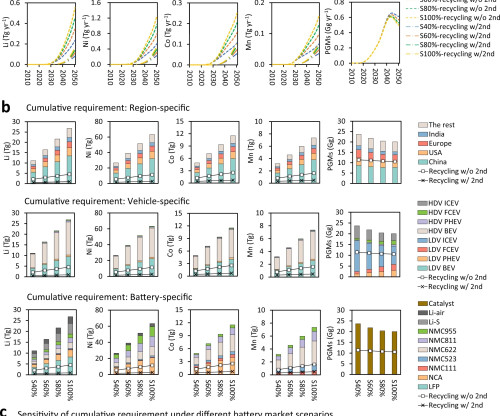Cornell study examines trade-off between critical metals requirement and transportation decarbonization
Green Car Congress
APRIL 17, 2023
Higher EV penetration reduces GHG emissions from fuel use regardless of the transportation energy transition, while those from fuel production are more sensitive to energy-sector decarbonization and could reach nearly “net zero” by 2040. Zhang et al. Monotonic growth in global demand for critical metals to 2050 is the most prevalent trend.















Let's personalize your content